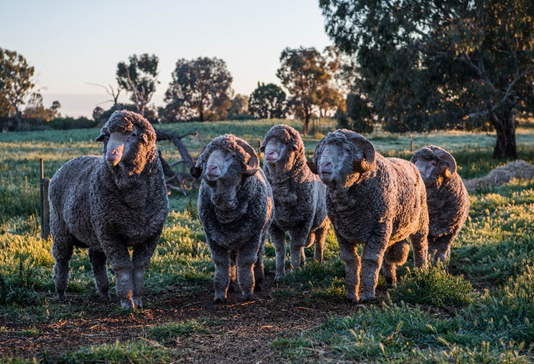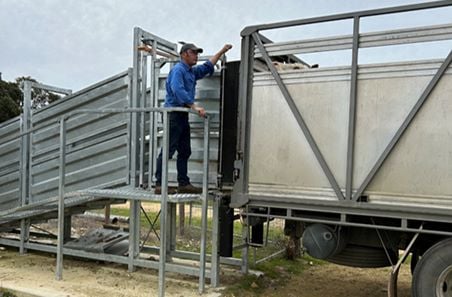Transporting rams

- Do not introduce rams to each other on the truck: Ensure that rams are run together for a minimum of two to three days prior to loading. The longer the better, as this gets them accustomed to each other and settled in the yards where they will work out their social hierarchy. It is far better for this to happen in the yards than on the truck or trailer and will result in less complications during transport. During this socialisation time, provide good quality dry hay and clean water.
- Prior to transport take them off feed and water overnight and load at daylight the next morning.
- Lighter penning density is an important consideration for rams.
- Identify any dangerous animals prior to the truck arriving and communicate clearly with the driver which animal/s are higher risk (wild).
- Have multiple people on hand to load, to minimise risk. Never load alone - this is a significant Work Health Safety risk.
- Rams can be susceptible to disease – ensure clean trucks and up-to-date vaccinations.
- Consider air flow, shade and forecast temperatures in transport. Heat stress can impact the production of semen in the weeks after a heat stress event.
- Where possible, allow rams time to adjust to their new environment before joining. The bigger the change in nutrition, temperature and humidity, the longer the time to adjust.
Fit to load checklistBefore livestock are loaded, ensure you complete this checklist. Remember, it’s your responsibility to ensure animals are fit to load and fit for the intended journey ahead of loading. The animal:
Note: If the animal was grazed on lush green pasture, ensure it was removed from the paddock well in advance of loading and provided with access to adequate roughage (where possible). Make sure the animals are prepared in the best way possible, noting water curfew is very important when transporting goats. Ensure paperwork is completed and facilities are safe, operational and ready for when the truck arrives to load your consignment. |
Case studies

When buying stud bulls and rams, Lachy Day says preparing for the journey home can help to minimise stress, optimise fertility and keep the animals in the best condition for working.


